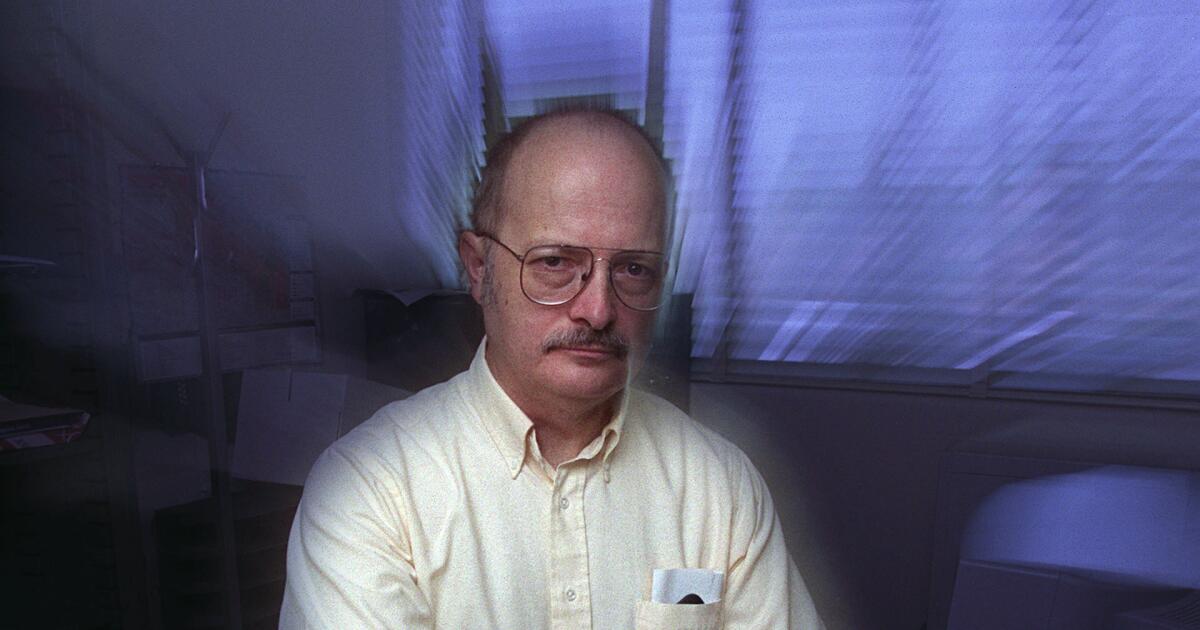

Vernor Vinge, the San Diego State University professor whose award-winning science fiction novels helped foretell the rise and impact of the internet and artificial intelligence and made cyberspace a household word, died on March 20 in La Jolla. He was 79.
Vinge had been suffering from Parkinson’s disease, according to John Carroll, an emeritus computer scientist at SDSU who was one of his closest friends.
Many of Vinge’s books, in one way or another, spoke of a coming “technological singularity” — the notion that machines will eventually become smarter than people, and that humans could be the worse for it.
He apparently was mining that theme during the last year of his life. Vinge was working on a sequel to “Rainbows End,” his immensely popular 2006 novel set in San Diego in 2025, when a cure exists for Alzheimer’s disease.
The book’s main character, 75-year-old Robert Gu, struggles to recover from Alzheimer’s and cope with extraordinary advances in technology, including one that’s capable of mind control. It’s a think piece on good and evil with a subplot that involves eliminating all physical books from Geisel Library at UC San Diego, where Vinge earned a doctorate in mathematics in 1971.
“There’s a conspiracy in which virtual reality becomes more and more real,” said Robert Crowther, a bookseller at the Mysterious Galaxy sci-fi bookstore in San Diego. “If you get rid of everything that is physical, how do you know what was ever truly real? The story was so ahead of its time.”
The book earned Vinge the 2007 Hugo Award — one of five Hugos that he would earn during his long career. The Hugo is considered the top book award in the science fiction genre.
Vinge (pronounced VIN-ghee) was born on Oct. 2, 1944, in Waukesha, Wisconsin. Both of his parents were geographers. He earned a bachelor’s degree at Michigan State University in 1966, then went on to newly-formed UCSD, where he obtained both a Master’s degree and a Ph.D.
He was captivated by science, particularly artificial intelligence. Vinge loved the idea of connecting the human brain to computers. Before long, he was publishing stories in sci-fi magazines and later began writing books.
Vinge made a splash in 1981 when he published “True Names,” a novella in which computer hackers dive into the world of virtual reality. The book, an early take on cyberspace, helped inform William Gibson’s famed 1984 novel “Neuromancer.”
Vinge went on to become a best-selling author and is remembered by many readers for three novels in particular: “Rainbows End,” “A Fire Upon the Deep” (1993) and “A Deepness in the Sky” (1999).
His prose was so evocative and original he was frequently mentioned in the same breath as three other top sci-fi writers of his generation — Gregory Benford, Greg Bear and David Brin. Collectively, they were known to sci-fi fans as the 3 B’s and 1 V.
In “A Fire Upon the Deep,” dog-like creatures communicate by using ultrasonic waves, creating a so-called group mind.
“It is high intelligence through a form of telepathy,” said Brin, who lives in Olivenhain. “That’s the kind of imagination Vernor had.”
Vinge’s writing was based as much on fact as imagination, leading some to call his work science faction, not science fiction.
Vinge is remembered for more than his own books.
“He supported (Mysterious Galaxy) from the day it opened in 1993,” Crowther said. “He was very kind.”
Carroll too remembers Vinge as “a gracious gentlemen who would help anyone who needed his advice, including his students. I never heard him say, ‘I’m too busy to do it.’”






